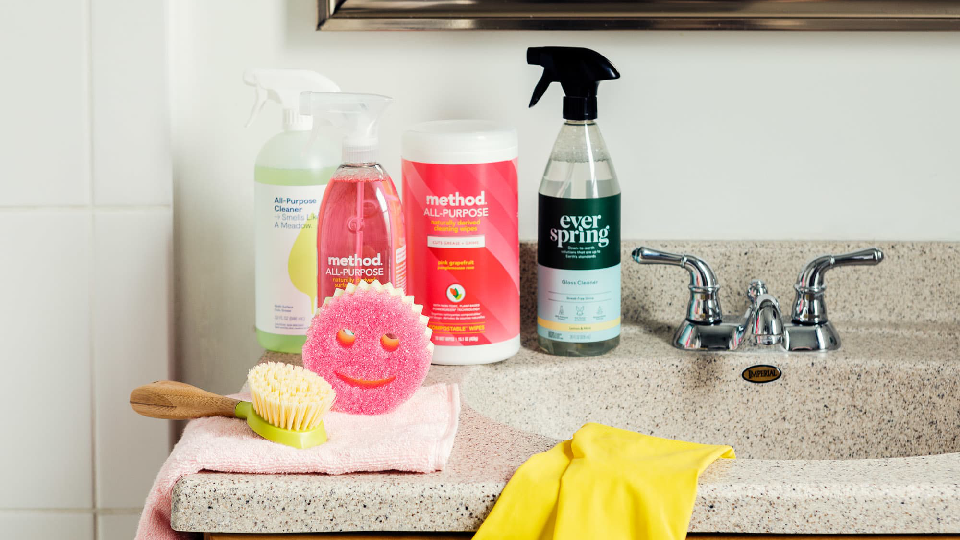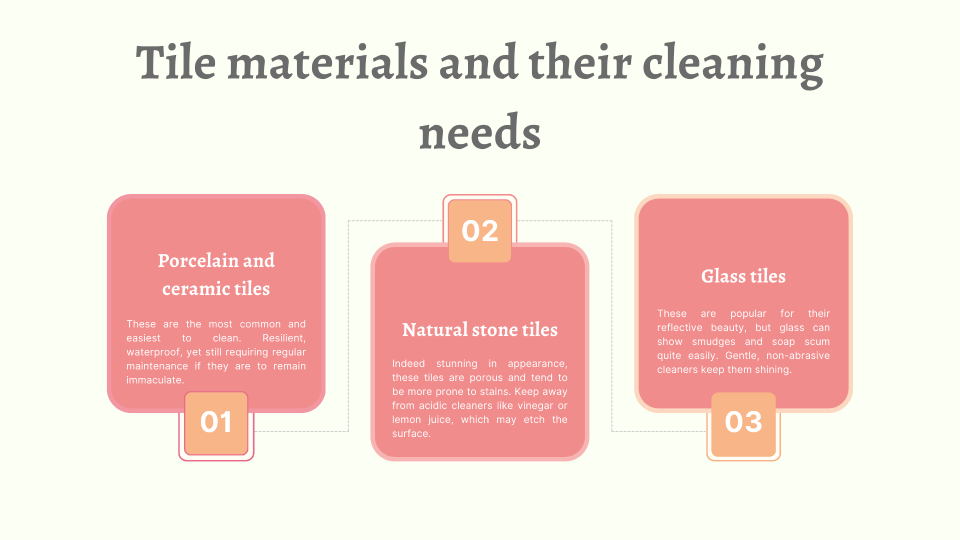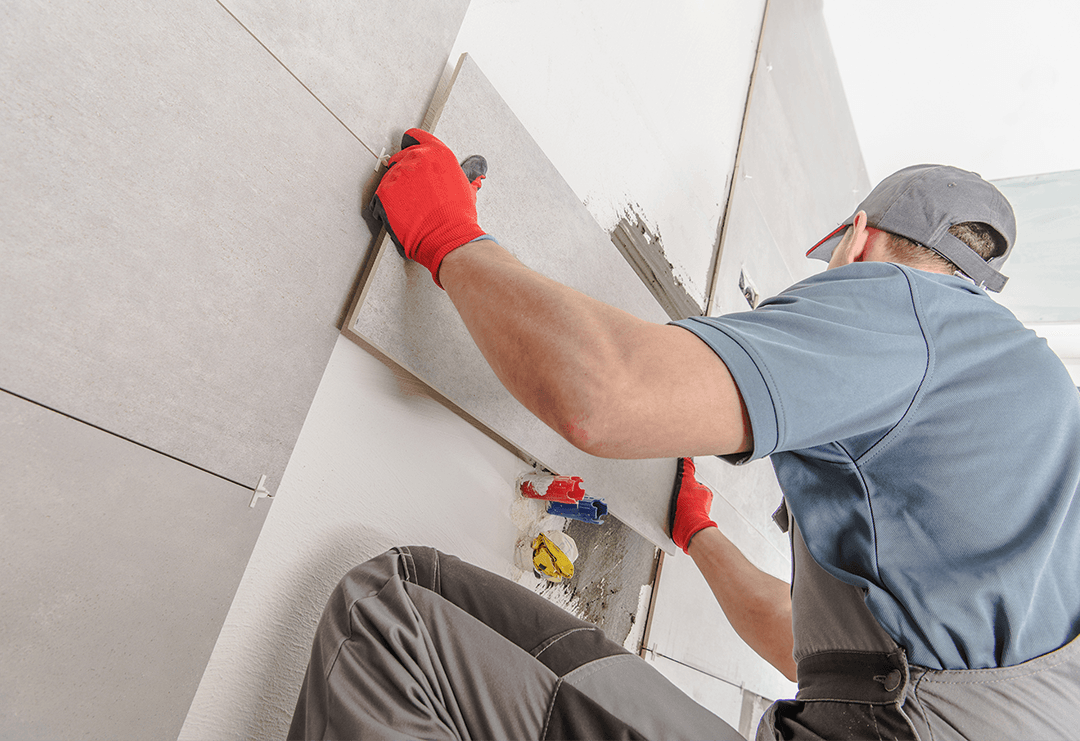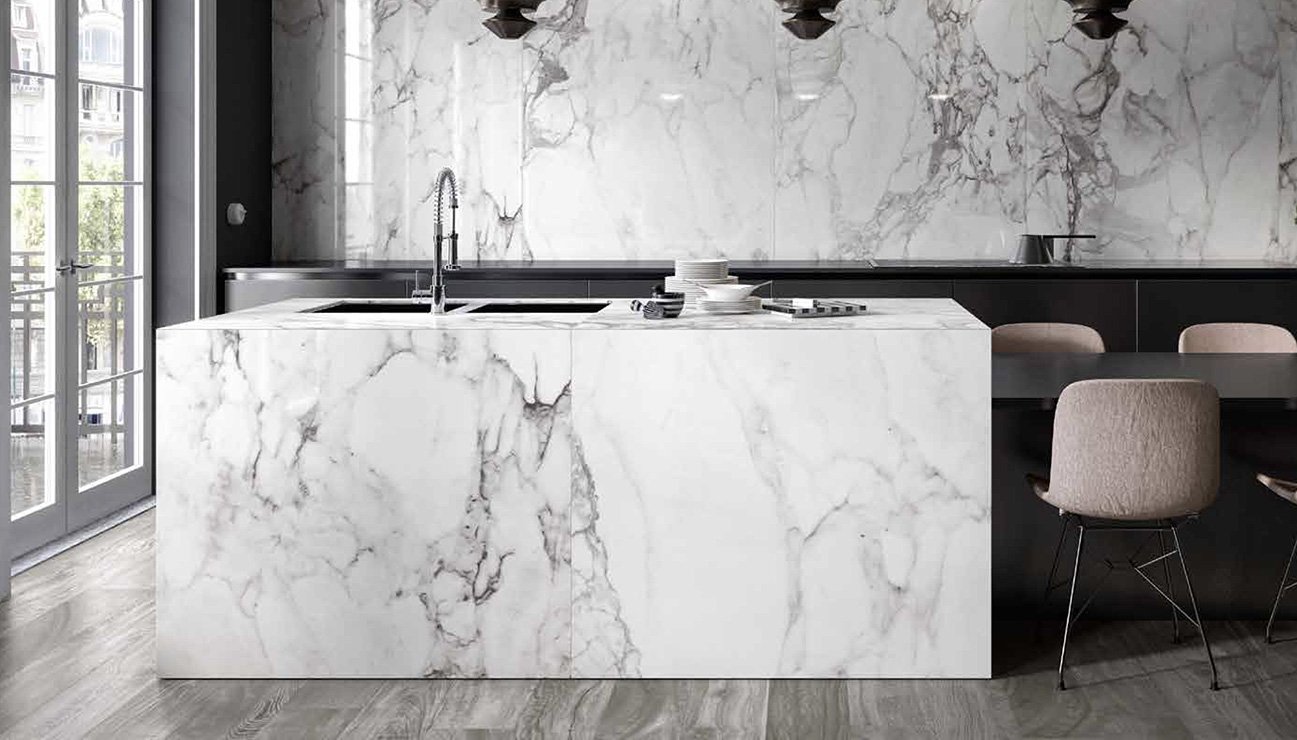Cleaning bathroom tiles is very important for their freshness and hygiene. Over time, tiles start to become dull, as dirt, stains, and soap scum build up. However, routine cleaning will keep your bathroom in great condition. In addition to that, it will also help prevent harmful bacteria from building up. In this article, we have talked about how to clean stained walls and floor tiles in the bathroom so that it looks clean and fresh.
A step-by-step guide on how to clean bathroom tiles

Image Source: Lalsoft.com
Step 1: Gather necessary supplies
To clean the bathroom wall tiles, you will need:
- Gloves
- Sponge
- Soft towel or cloth
- A toothbrush
- White vinegar or lemon juice
- Baking soda
- Water
- Spray bottle
To clean the bathroom floor tiles, you will need:
- Mop
- Gentle detergent
- Broom
- Water
Step 2: Remove surface dirt and dust
The first step in bathroom floor cleaning involves removing the loosened dirt, while wall tiles require a dry or slightly moistened microfiber cloth to wipe away the surface dirt gently. This way, the solution can penetrate the dirt accumulation.
Step 3: Prepare a cleaning solution
For tiles, the normal mixture of water and mild detergent will work for regular cleaning. If you’re doing a deep cleaning, combine equal parts white vinegar and water.
For grout, combine baking soda and water in a small bowl to make a paste. Alternatively, a mixture of hydrogen peroxide and baking soda also works effectively to clean discoloured or stained grout.
Step 4: Apply cleaning solution
For floor tiles, dip the mop in the solution and apply it to the tiles. Meanwhile, for wall tiles, the easier way to do this would be with a spray bottle. Allow the solution to remain on for 5-10 minutes.
For grout, apply baking soda paste, targeting those spots with visible mould, mildew, or another staining.
Step 5: Scrub the tiles and grout
For tiles, use a non-abrasive sponge or brush, lightly scrubbing in continuous circular motions over the tile so that you remove dirt without scratching tile surfaces.
For grout, scrub grout lines with a toothbrush or grout brush, applying greater force to regions with stains and mould.
Step 6: Rinse with water
Rinse the floor tiles and grout after scrubbing with a mop to clean the tiles.
As for wall tiles, simply wipe them down with a moist towel.
How to clean tough stained wall and floor tiles in the bathroom?
Below mentioned are some effective methods for cleaning different kinds of stains:
- Soap scum: To remove soap scum, only vinegar mixed with dish soap is needed. Apply and scrub effectively on the tiles.
- Mould and mildew on grout: For mould and mildew that appear on grout lines, a mixture of hydrogen peroxide and baking soda is applied to the surface for a few minutes before scrubbing.
- Hard water stains: White vinegar is used to remove hard water stains on tiles. It can be sprayed right onto the area and scrubbed off with a brush before rinsing.
Understanding tile materials and their cleaning needs

| Also see: Ceramic tiles vs vitrified tiles: Which one should you choose? |
Watch this video: How to clean bathroom tile (1 minute and 14 seconds)
Bathroom tiles and grout cleaning is not that difficult, provided that it is done in the right manner. Knowing how to clean stained tiles in the bathroom is essential for maintaining their fresh look. Thus, cleaning regularly will give a bright, clean, and attractive look to your bathroom. If the above-mentioned steps are followed and regular maintenance is ensured, the tiles and grout will appear new even after years.
FAQs
How often should I clean bathroom tiles and grout?
Bathroom tiles and grout should be cleaned at least once every week to avoid accumulating dirt. If the bathroom is used by a lot of people or if the water is hard, then cleaning should be done more frequently. This often prevents mould and mildew from growing, especially in the grout lines of the bathroom, to make it hygienic and fresh.
How often should grout be sealed?
Seal grout every 6 to 12 months to protect it from stains, moisture, and mould growth. Sealing increases grout’s durability. Additionally, in areas of high humidity or where grouts are subjected to water frequently, such as showers, more frequent sealing may be necessary to ensure long-lasting protection and to keep your grout look clean and fresh.
How do I clean natural stone bathroom tiles?
Clean natural stone bathroom tiles with a pH-neutral cleaner. Even mild acidic cleaners like vinegar or lemon can be bad for the tile and should not be used on it. Gently wipe the tiles with a soft cloth or sponge, cleaning with clean water. Use a microfiber towel to dry the surface to avoid water spots and preserve the natural look of the stone.
*The featured image used in this article is from Tilewarehouse.co.nz
Bathroom tiling: 23+ Tile designs and a step-by-step DIY guide
One space in your house that demands more consideration when it comes to design is the bathroom. Tiling is commonly regarded






















